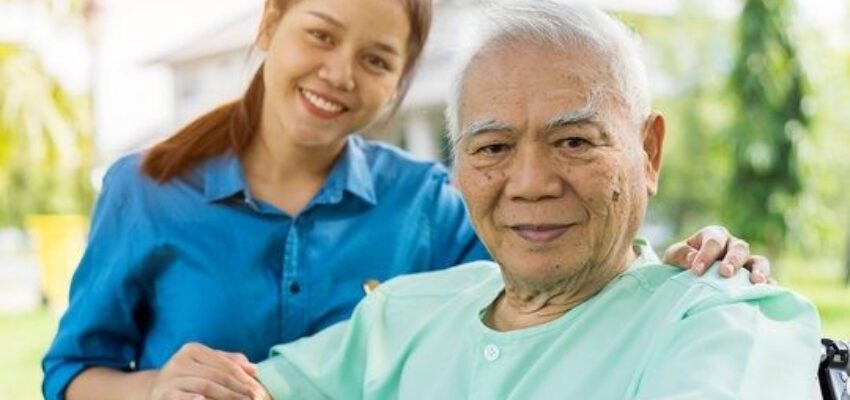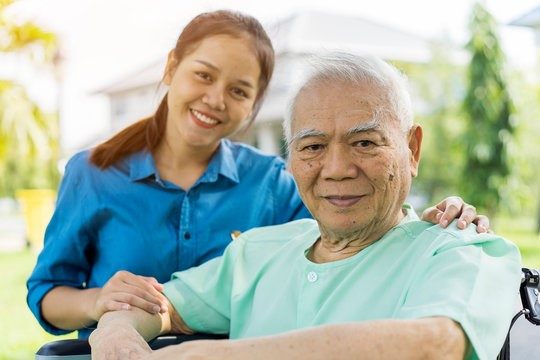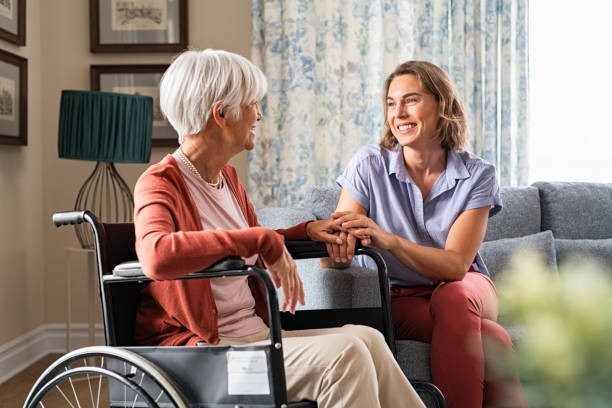
How Caregivers Can Help Seniors with Physical and Mental Health

Old age is the most unexpected thing to happen to people. Its companions include diseases and illnesses, lack of mobility, and a decline in the psychological state of mind. Due to this, most seniors resort to an inactive lifestyle.
Statistics About Elderly Individuals in Singapore
Singapore is one of the most aging populations in Asia.
Although elderly individuals accounted for almost 17% of the population in 2021, it’s expected to exceed 33.3% by 2050.
Besides that, Singapore has the highest age expectancy in the world.
But that’s only one side of the coin.
The real challenge lies in undetected and undiagnosed mental and physical health issues.
While family members play a vital role in caring for their elderly loved one, it’s not always enough. With work and other social obligations, the ones neglected are no other than seniors.
The Impact of Ignoring Mental Health
When seniors are left to tend to themselves or sent to assisted living facilities, it impacts their mental state.

According to WHO, mental health issues can lead to deteriorating conditions, with depression and anxiety disorders making it to the top. In worse situations, elderly adults may resort to substance abuse as well.
Initially, the signs and symptoms of depression and anxiety are ignored. Family members might mark it as general tiredness or a result of having a bad, unproductive day.
But the reality is much deeper than that.
What starts as a trivial issue can quickly transition to something sinister. For example, you might find your loved one:
- Avoiding social gatherings
- Staying in their rooms or
- Refusing to go out.
In anxiety disorders, older adults may fear falling, hallucinate, or have panic attacks for no apparent reason.
Finally, worsening depression and feelings of doom can lead an elderly individual to substance abuse. It’s one of the reasons nursing homes have special classes to help seniors overthrow addictive behaviors.
However, nursing homes can be costly to bear. And that’s where live-in caregivers play a pivotal role.
Read Also: Live-in Care or Nursing Home: What’s Better?
A Caregiver’s Role in Improving Mental Health

Caregivers are trained and compassionate individuals who care for seniors in their times of need. Although the general idea is that caregivers can only assist in physical activities, there is more to it than meets the eye.
A trained caregiver can help their client break through the shackles of loneliness and impending doom.
How do they do this? By providing their companionship.
And it goes beyond being a mere physical presence. Instead, it’s about actively engaging with elders in their favorite activities. These include:
- Playing cards or board games
- Going grocery shopping with them
- Running errands
- Enjoying a cup of tea together
- Going on walks
- Or sharing life experiences
The simple act of dedicating time does wonders. And that’s what caregivers are trained for.
Seniors and Physical Health
Chronic diseases, immobility, and neurological illnesses are significant deterrents to an active lifestyle. As a result, it forces seniors to choose indoors over a stroll in the park.
For patients with neurological disorders like Alzheimer’s, it becomes more of a liability for family members as such patients are prone to wandering away and losing their way back home.
Some adults fear injury, so they avoid walking or climbing stairs altogether.
Neglecting these signs can lead to frequent hospitalizations and doctor’s visits. That’s why it’s crucial to nip it in the bud and hire professionals who can become the support system for your elderly loved ones.
How Caregivers Help Older Adults with Physical Activities
The level of care your loved one needs depends on their unique condition. You can choose a live-in caregiver if your elderly family member needs 24/7 assistance. But hiring a caregiver for a few hours or during the daytime would also suffice to help the senior maintain physical activity.
Here’s how caregivers can help adults with a healthy lifestyle:
As a general rule of thumb, caregivers are assigned to take elders to and from the toilets, and help them bathe, dress up, and groom. If the senior wishes, caregivers can take them for a walk around the house or neighborhood to socialize.
Apart from that, the physical activities caregivers can help with include:
Exercises to Maintain Balance
One of the worst factors contributing to injuries in seniors is falling. In fact, one in three elders over 65 falls annually. This is a prime factor preventing older adults from taking a step alone.
Balance exercises help by improving stability and reducing the risk of falls.
With a one-on-one caregiver-client interaction, your loved one can learn to stay proactive without falling. These exercises include watching if a senior:
- can walk in a straight line
- can hold a leg up for a couple of seconds
- perform light Tai Chi
Exercises to Make Bodies Flexible
Activities of Daily Living require some movement of the limbs. For example, while dressing up, taking a bath, or placing things on a shelf while cleaning. However, a sedentary lifestyle can stiffen the limbs.
Flexibility exercises are designed to assist in routine activities.
During the exercise, a caregiver oversees the senior taking position on the floor, sitting with a leg extended, and the upper body bent towards the leg.
The step may feel small initially. But it can lead to improved life quality with a compassionate caregiver looking after the elderly adult.
Exercises to Increase Strength
It’s no surprise that limbs and muscles become weak with age. As a result, the simple act of holding a child or a grocery basket becomes too much. That’s why strength exercises can come in handy to strengthen muscles.
These exercises include light weightlifting using props, such as tennis balls and vegetable cans.
The Final Word
They say it takes a village to raise a child. We’d add that it needs all hands on deck to take care of seniors, too.
So, while the primary responsibility of caring for aging family members falls on your shoulders, don’t beat yourself up if you can’t make time.
Instead, reach out to us at Top Faith and place your trust in our caregivers to care for your loved ones like their own.


This article is useful
Thanks for sharing